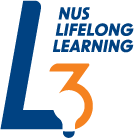Objectives
- Build an understanding of key considerations in selecting theories and frameworks of Behavioural and Implementation Sciences suitable for the aims and goals of a health project.
- Understand the nature and differences between process, explanatory and evaluation frameworks for implementation planning and research design.
- Develop the skills to combine effectively well-established implementation frameworks of different types, into implementation plans and study designs. Examples of implementation frameworks are, e.g.:
a) CFIR - Consolidated Framework for Implementation Research
b) COM-B - Capability (C), Opportunity (O), and Motivation (M), three key factors capable of changing behaviour (B)
c) QIF – Quality Implementation Framework
d) RE-AIM – Reach, Effectiveness, Adoption, Implementation, and Maintenance
- Become familiar with the application of framework-supported mixed methods for data collection in implementation studies and evaluations
- Apply the novel concept of ‘hybrid’ effectiveness-implementation design, and its variants, to design, implement, and assess the effectiveness of behavioural and implementation strategies in real-world healthcare contexts.
Who Should Attend
All healthcare professionals and healthcare-related job roles.
Researchers and research-related job roles.
Entry Requirements
General degree in any discipline.
Class Schedule
TUE 09 SEP 8:30AM - 5:30PM & WED 10 SEP 8:30AM - 1:00PM
Lesson Delivery
a) Interactive Teaching: 6 hours
b) Facilitated Group Discussion: 5 hours
c) Online quiz: 1 hr
| ** |
|
Please note that the mode of delivery is subject to change in light of the COVID-19 situation.
Courses marked ‘online’ may have compulsory face-to-face sessions such as laboratory or hands-on components and details should be sought from the schools or departments before learners register for them.
|
Last updated: 04 July 2025


